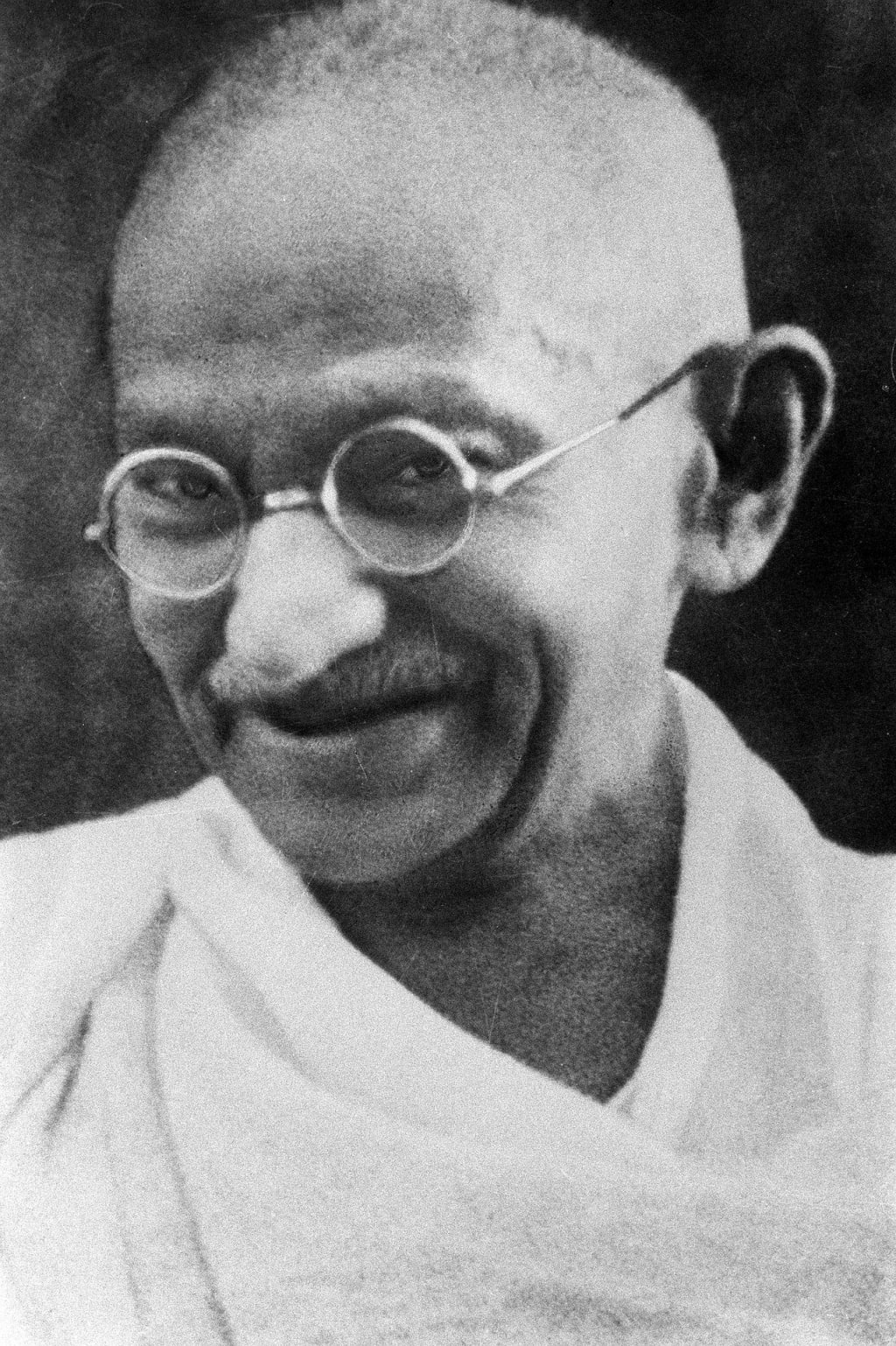Gandhi - The Mahatma
Remembering the man who led to India's independence through non-violence, on his 73rd death anniversary.

7 June 1893. It was a cold night. A man sat shivering on the Pietermaritzburg train platform. He was just thrown out of the first-class compartment of the departed train, even though he had the first-class ticket. Reason? He was a man of color. This singular event would turn out to make the man question his beliefs and faith. It would make him rethink the hopeless hardships of Indians and people of color. It would lead to a spark in his mind, which would turn into a fire engulfing him and a whole nation into the principles of Ahimsa and Satyagraha. It would later turn him into a Mahatma.
Gandhiji writes in his autobiography, "The Story of My Experiments with Truth" thus,
"It was winter, and winter in the higher regions of South Africa is severely cold. Maritzburg being at a high altitude, the cold was extremely bitter. My overcoat was in my luggage, but I did not dare to ask for it lest I should be insulted again, so I sat and shivered. There was no light in the room. A passenger came in at about midnight and possibly wanted to talk to me. But I was in no mood to talk.
I began to think of my duty. Should I fight for my rights or go back to India, or should I go on to Pretoria without minding the insults, and return to India after finishing the case? It would be cowardice to run back to India without fulfilling my obligation. The hardship to which I was subjected was superficial - only a symptom of the deep disease of color prejudice. I should try, if possible, to root out the disease and suffer hardships in the process."
Gandhiji was a man like any other before the South Africa incident. After the incident, he returned to India as a newfound man and inspired the country's people with the principles of Ahimsa (non-violence) and Satyagraha (holding onto the truth). Needless to say, the country's youth were not ready to accept non-violent means in response to the British colonialists' merciless violence. But Gandhiji stood his ground. He slowly started gaining an almost cult-like following to his principles.
Gandhiji's Persona and Principles:
Swadeshi Movement:
After coming to India and seeing the plight of his fellow brothers and sisters, Gandhiji renounced his turban and western clothes. He started wearing Khadi(hand-spun) clothes. He was a strong supporter of home-grown clothes, which were made by hand-spun yarn. Thus born the Swadeshi Movement, boycotting the English products and encouraging the local produce. British colonialists exported the raw materials for clothes out of India and then re-imported the clothes at an increased price for Indians. It was also one of the main reasons for the Swadeshi Movement to take strong force among Indians. Taking inspiration from the past, on August 7, 2015, Indian Prime Minister Narendra Modi Commemorated the first National Handloom day in India to promote the indigenous khadi and handloom products.
Though Gandhiji's simple khadi attire was a source of inspiration for the Indians, as it represented the poorest of the Indian people, it evoked different reactions when he traveled out of India. One fine example of this is when he traveled to England to attend the Round Table Conference for peace talks between India and England.
Winston Churchill famously said these words after he refused to meet Gandhiji, "I am not prepared to meet that half-naked fakir of India as long as he does not learn how to dress properly."
And when Gandhiji was invited to meet King George V at Buckingham Palace in 1931, a reporter asked him, "Mr. Gandhi, do you think you are properly dressed to meet the king?"
Gandhiji replied: "Do not worry about my clothes. The king has enough clothes on for both of us.”
Early Influences:
The Story of Shravan - In the epic Ramayana, Shravan is a boy who takes care of his blind parents by carrying them wherever he goes. One day King Dasharatha, mistaking Shravan for the hunt he was chasing, kills Shravan. Before dying, Shravan pleads with Dasharatha to bring water to his parents and only then tell the bad news of their son's death. Dasharatha does as told by Shravan and incurs the wrath of Shravan's parents. They curse him to lose his son the same way they lost theirs and die. Later in the story, Dasharatha dies the same way grieving after being separated from his son.
The story of Harichandra - The once king Harichandra, gives away his kingdom, sells his family, and becomes a slave himself to fulfill a promise he made to the great sage Vishwamitra. He doesn't stray away from the virtuous path and doesn't lie once, throughout all the hardships he endures.
The above stories etched themselves deeply in Gandhiji's heart during his childhood and paved a way for him to lead a virtuous path himself. In his autobiography, he says, "Both Harishchandra and Shravana are living realities for me, and I am sure I should be moved as before if I were to read those plays again today."
Vegetarianism:
Born in a Hindu family, Gandhiji was a staunch supporter of vegetarianism. His non-violent principles extended from politics to food, where he did experiments with his diet to find the most non-violent food sources. He also wrote a book "The Moral Basis of Vegetarianism" in which he has discussed his experiments with food.
Influential Followers of Gandhian principles:
Martin Luther King Jr:
Marting Luther King Jr, known for his contributions to the civil rights movement in the United States, drew inspiration for non-violence from the teachings of Gandhiji. He had a great reverence for Gandhiji's non-violent principles that, he told the reporters after coming to India, "To other countries I may go as a tourist, but to India I come as a pilgrim".
Nelson Mandela:
The former president of South Africa and anti-apartheid activist, Nelson Mandela, called Gandhiji his political guru and a role model. The Indian government awarded Mandela with Bharat Ratna, the nation's highest civilian honor, in 1990. So did many other nations. Along with several international accolades, including the Nobel Peace Prize in 1993, he also received the Gandhian peace prize in 2000.
The name Gandhi has come to be associated internationally with virtuous deeds and peaceful protests. Gandhiji once said, "An eye for an eye only ends up making the whole world blind." In the wake of terrorism and creating unrest among people, Gandhian principles of non-violence are more relevant now than ever. 30 January 2021 marks the 73rd death anniversary of the Mahatma. Let us remember him for the legacy he left and the path he paved for future generations.
______________________________________
Author's Note:
Gandhiji - ji is a term that denotes respect to a person which has been used throughout this article.
Mahatma (meaning great soul) is not part of Gandhiji's name, contrary to popular beliefs. It is a title conferred to him by Rabindranath Tagore (Nobel prize-winning poet hailing from India), according to some sources.
About the Creator
vaisrinivasan
Writer of musings. Occasional traveller.
https://ko-fi.com/vaishnavi_scribbles






Comments
There are no comments for this story
Be the first to respond and start the conversation.